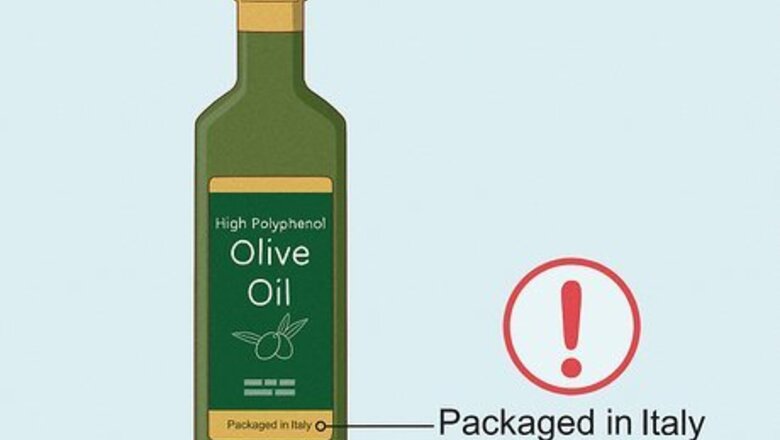
views
Evaluating the Label

Do not be deceived by location. Not all olive oil is created equal. Usually, the bottom of a bottle of olive oil says where the oil is from. Labeling can sometimes be intentionally deceitful. The company may boast their olive oil is from Italy, but the oil may only have been packaged in Italy. While an oil boasting of being straight from Italy is not necessarily bad, make sure to check other aspects of the oil carefully. The company may be trying to make easy sales by impressing costumers based on the oil's origin.

Take note of the harvest date. Olive oil does not have a lengthy shelf life, so look for the harvest date on the label. Ideally, you want to purchase an olive oil that has a more recent harvest date. Olive oil only lasts for two years, and that's assuming it's stored in perfect conditions. Even when stored properly, the flavor diminishes with time. The older the harvest date, the less taste the olive oil will have. If a bottle does not have a harvest date listed, put it back. Never purchase olive oil without knowing the harvest date.

Make sure there's a seal of approval. A seal of approval from at least some kind of olive oil organization should appear somewhere on the label. California-based olive oils, for example, should have a seal of approval from the California Olive Oil Council. This increases the chances the oil is quality. Olive oil that comes with a seal of approval also tends to be more upfront and honest about factors like harvest date. The seal of approval is usually found on the back of a bottle of olive oil.
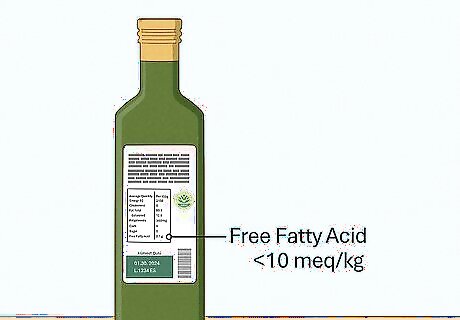
Avoid oils with high levels of free fatty acids. Free fatty acids (FFA) are often an indication of the quality of the fruit used in your olive oil. Low levels of FFAs do not necessarily mean olive oil is high quality, but high levels indicate a poor quality oil. Look for oils with free fatty acids less than 10 meq/kg. Free fatty acid levels should be listed on an oil's ingredients label. Avoid purchasing oils that do not list fatty acid levels.
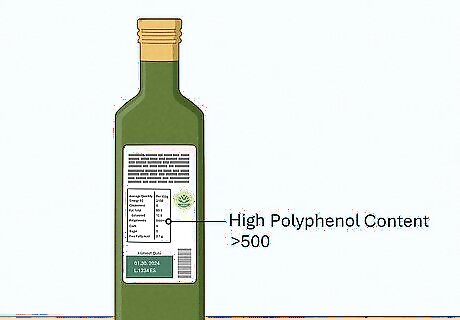
Look for an oil with a high polyphenol content. Polyphenol contributes to the amount of heart-healthy antioxidants in olive oil. In general, a higher polyphenol content indicates a healthier olive oil. A polyphenol content below 300 is considered low and one above 500 is considered high. One downside to a higher polyphenol content, however, is the taste. Some polyphenol contents are over 800, which can make olive oil a little more bitter.
Considering Your Needs
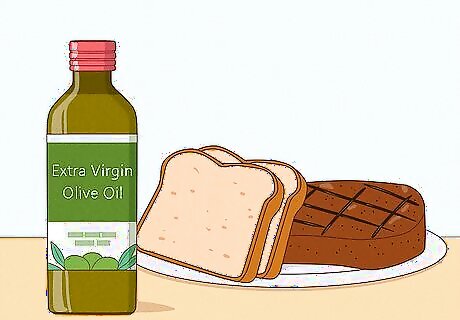
Pick extra virgin olive oil if you're using it as a condiment. If you're looking for an oil to drizzle over breads, cheeses, or meats, go for extra virgin varieties. Extra virgin olive oil is best served unheated and will therefore be very flavorful when used as a condiment. When using olive oil as a salad dressing or for mild foods like mozzarella, go for a mild or medium strength oil. Heartier foods or more flavorful vegetables like tomatoes pair well with a more robust oil.
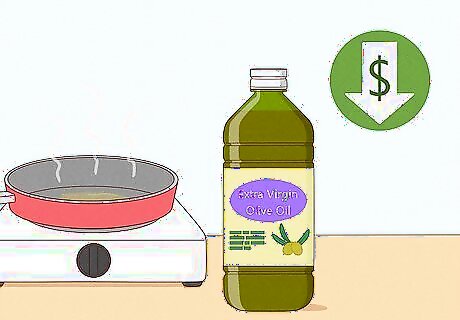
Opt for cheaper olive oil if you're using it for cooking. If you're using olive oil for a cooking oil, the oil loses a lot of its flavor during the cooking process. Therefore, there is little point splurging on an expensive, flavorful cooking oil. Go for a slightly lower priced oil. It will probably not taste as good as pricier brands, but taste is less important with cooking oils. Extra virgin olive oil tolerates heat best, so opt for cheat brands of extra virgin olive oil for cooking.
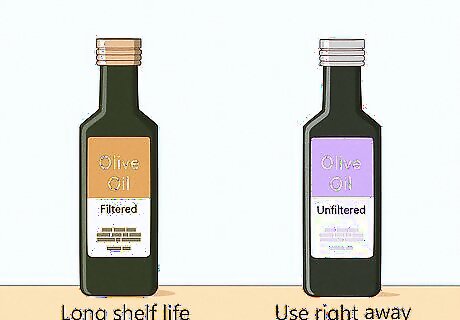
Decide between filtered and unfiltered. Many people assume filtered oil is higher quality, but this is not necessarily always the case. It depends more on how quickly you intend to use the oil. Unfiltered oils sometimes have a stronger taste, but you need to use them quickly as they spoil much faster than filtered varieties. In general, go for filtered oil if you need olive oil with a long shelf life and opt for unfiltered varieties if you plan to use the oil right away.
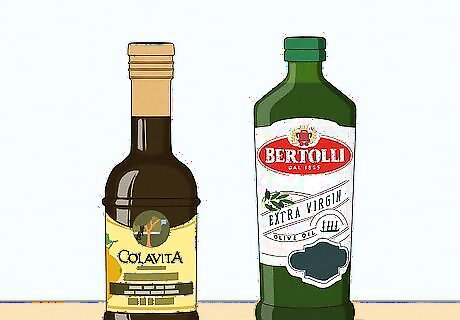
Choose the taste you want. Different brands and types of oils have different tastes. Make sure to account for taste when selecting your oil and pick an oil that corresponds to your desired taste. Extra virgin brands of Colavita tend to have a very complex taste. For a more neutral taste, go for Bertolli extra virgin. Think about other factors, such as the oils spiciness, grassiness, fruitiness, and so on. It may be difficult to assess this at a grocery store. If you need a very specific flavor, shop at a farmer's market. Those selling olive oil will generally be able to give you a good overview of their product's flavor.
Shopping at the Right Locations

Shop at a mill, if possible. If you live near a mill that produces olive oil, see if they have a shop on sight. The fresher the oil, the better. Also, mill workers may be able to give you a better overview of the varying flavors of their oils. If you can buy directly from a mill, do so.

Shop at places that allow a taste test. Most people do not have the privilege of living near a mill, however. As a second resort, it's always a good idea to shop at places that allow taste testing. Gourmet food stores, farmer's markets, and stores that specialize in olive oil often allow a taste test. Tasting the oil ahead of time is a great way to ensure it has the flavor you desire.
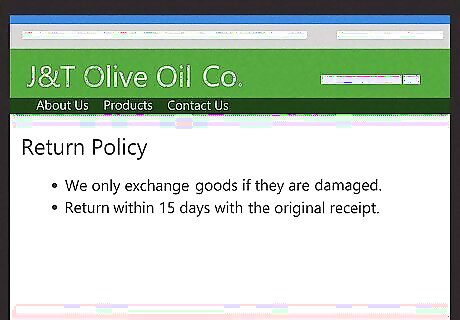
Check the return policy. Ideally, you should be able to return olive oil if you don't like it. As olive oil is expensive, you don't want to be stuck with a bottle of oil that does not suit your needs. Make sure you're able to return olive oil you purchase and get at least some of your money back.

Check the bottles. Olive oil should be stored in dark bottles. This will increase the shelf life. A store that sells olive oil in dark bottles will likely provide higher quality, fresher oil that is better to use. Avoid stores where olive oil is stored improperly.















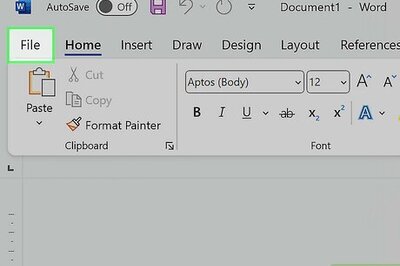

Comments
0 comment